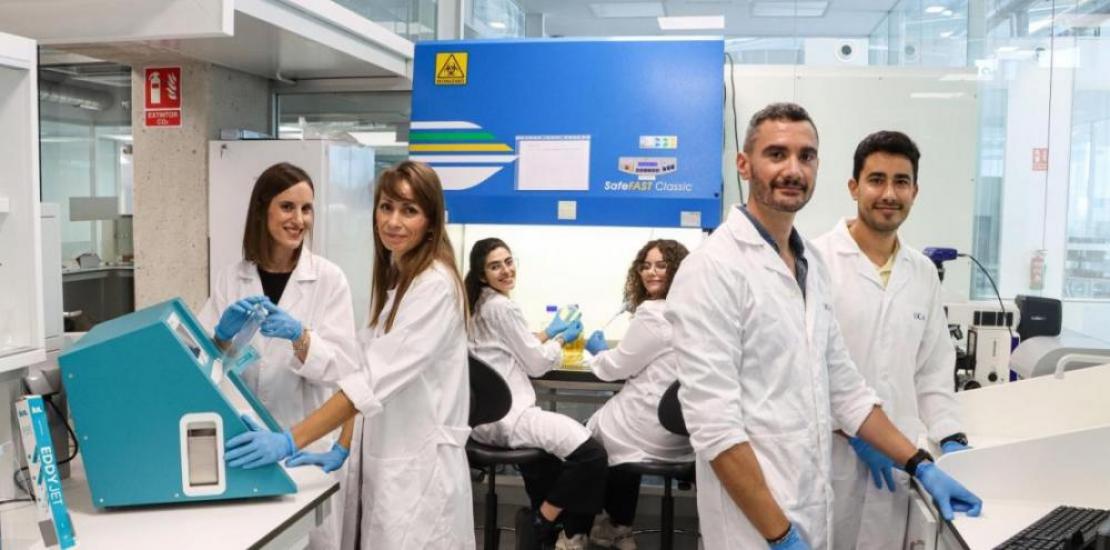UCAM to develop an anti-ageing food product
NutriAge+ is a project funded by the Ministry of Science and Innovation, focused on developing a functional food that helps to slow down and/or reverse the natural processes related to cellular deterioration
Ageing is a multifactorial process that involves the alteration of various cellular pathways. Among the alterations, there are those that produce nicotinamide adenine dinucleotide (NAD+), which is an essential component of energy metabolism. Its decline is postulated as one of the main factors involved in the ageing process.
In recent years, studies to increase the NAD+ levels through the administration of its precursors have shown their effectiveness in improving and preventing age-related diseases.
The NAD+ and its precursors have been studied at UCAM for three years by the ‘Metabolism and Gene Regulation of Diseases’ research group, led by researchers Rubén Rabadán and Rubén Zapata, with the aim of improving people's quality of life. Thanks to the funding obtained in the call ‘Proyectos de Generación de Conocimiento’ (Knowledge Generation Projects), from the Ministry of Science and Innovation, UCAM scientists are going to start the NutriAge+ project, a three-year study that focuses on the use of laboratory models of ageing (in cell lines and mice) to develop a functional food product with anti-ageing properties. This food will be based on the combination of NAD+ precursors with other compounds with anti-ageing properties that are naturally present in foods.
The compounds chosen for the manufacture of this new functional food are ergothioneine, a natural antioxidant with anti-senescence effects, found mainly in mushrooms; sulforaphane, a regulator of mitochondrial function found in high quantities in broccoli; and beta-hydroxymethylbutyrate, found in fruits such as grapefruit and avocado.
The research will be carried out in three stages. Firstly, the effects of NAD+ precursors combined with the above-mentioned natural compounds will be tested in aged cells in order to find the best combinations of anti-ageing compounds. Next, these combinations will then be tested in elderly mice to confirm their effectiveness in improving different parameters associated with ageing, such as muscle strength and endurance. Finally, a new broccoli-based functional food product will be developed enhanced with the optimal combination of NAD+ precursors and natural anti-ageing compounds, in order to combat cell decline associated with the ageing process in a comprehensive manner.
After this last phase, project researchers Rubén Zapata, Rubén Rabadán, Silvia Montoro, Begoña Alburquerque, Enrique Caso, Lucía González, Elena Cienfuegos, Mariano de la Piedad, Macarena Alba Gil and Judit García will continue to explore the potential of this food for its use and commercialisation in humans.




